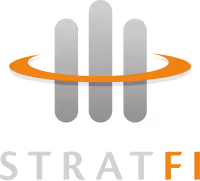Commentary
Insights to help you invest smarter.
Browse our collection of articles, videos, and guides — created to help you make confident, informed decisions about your financial future.
Oops! Something went wrong while submitting the form.
.avif)
.avif)
Commentary
Latest articles and commentary
Explore timely insights and thoughtful perspectives from James H. Lee and StratFI.
Each article is designed to help you cut through the noise, understand the bigger picture, and invest with confidence.
Thank you! Your submission has been received!
Oops! Something went wrong while submitting the form.
Decks
Presentations
PDF Slides for downloading
Media Interviews
StratFI in the news
We’re proud to be featured in respected publications and conversations around the future of investing.
Thank you! Your submission has been received!
Oops! Something went wrong while submitting the form.
Do you want monthly Foresight straight to your inbox?
Once a month, James H. Lee shares timely insights on investing and long-term thinking — no noise, no sales pitches.
Oops! Something went wrong while submitting the form.

